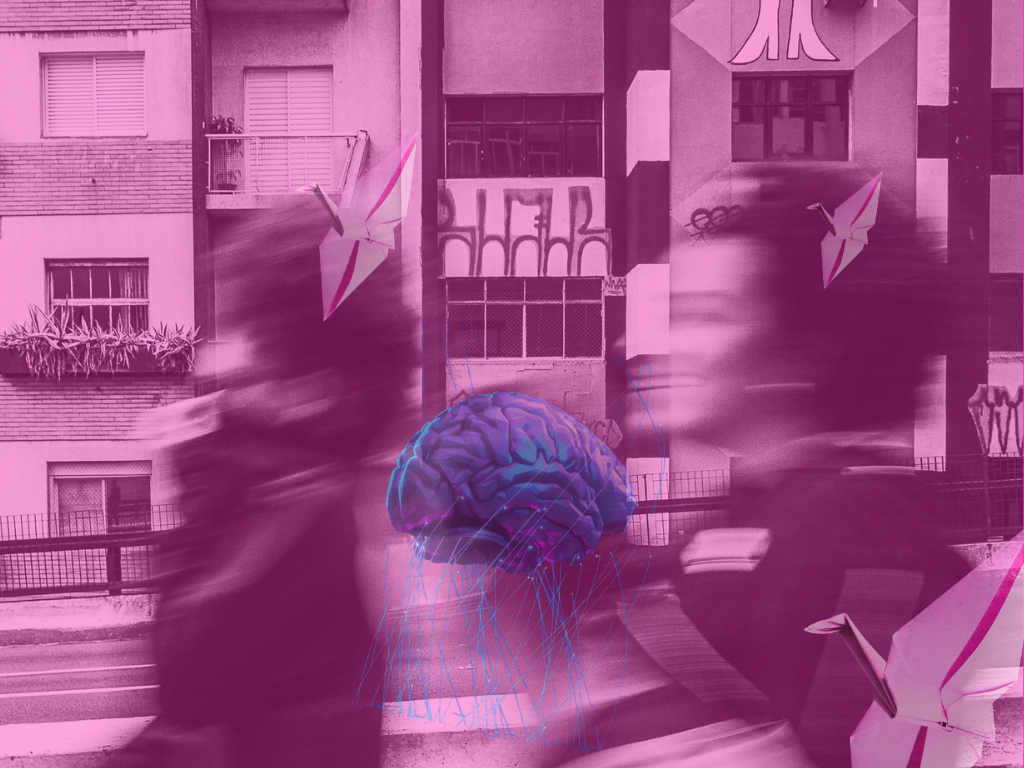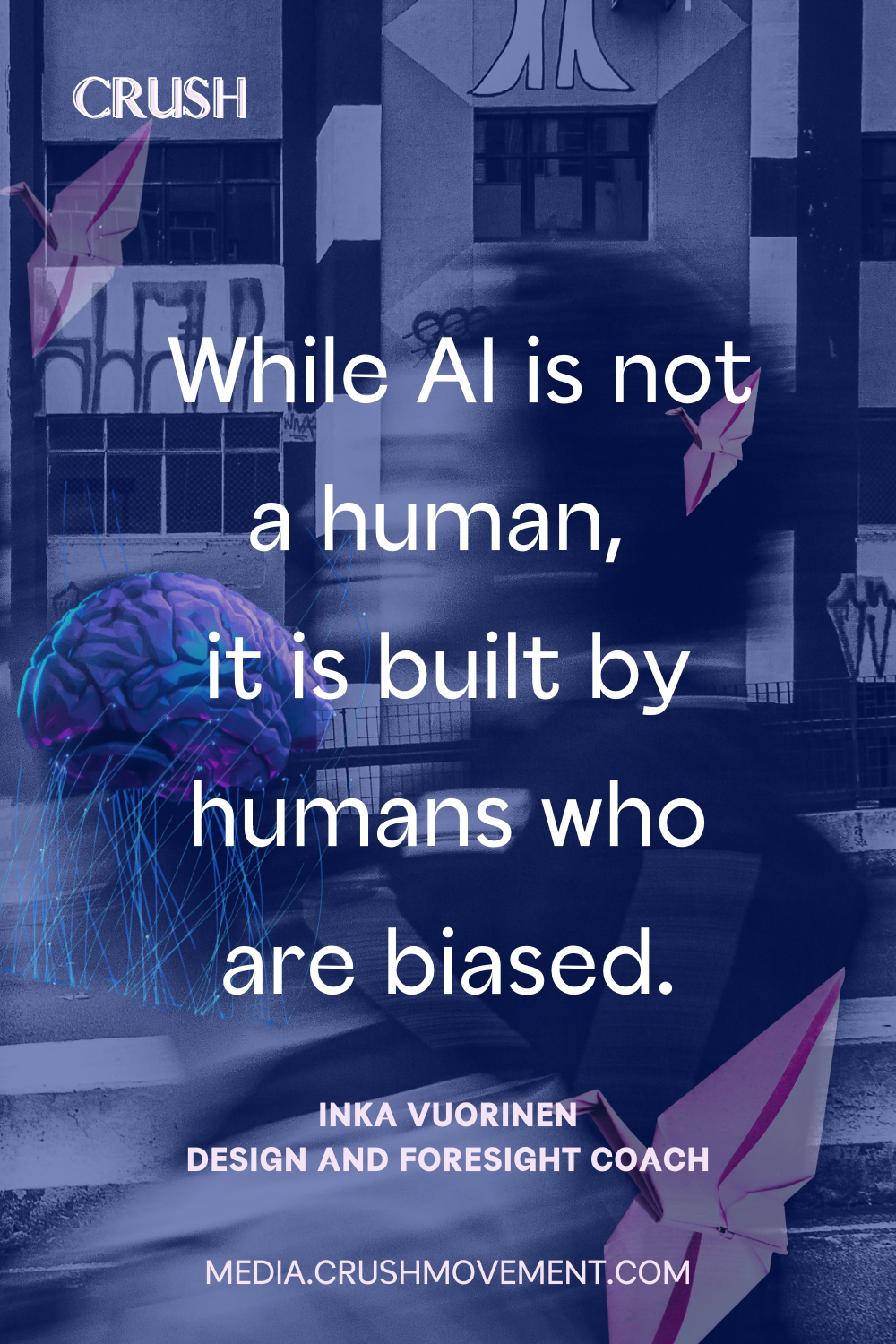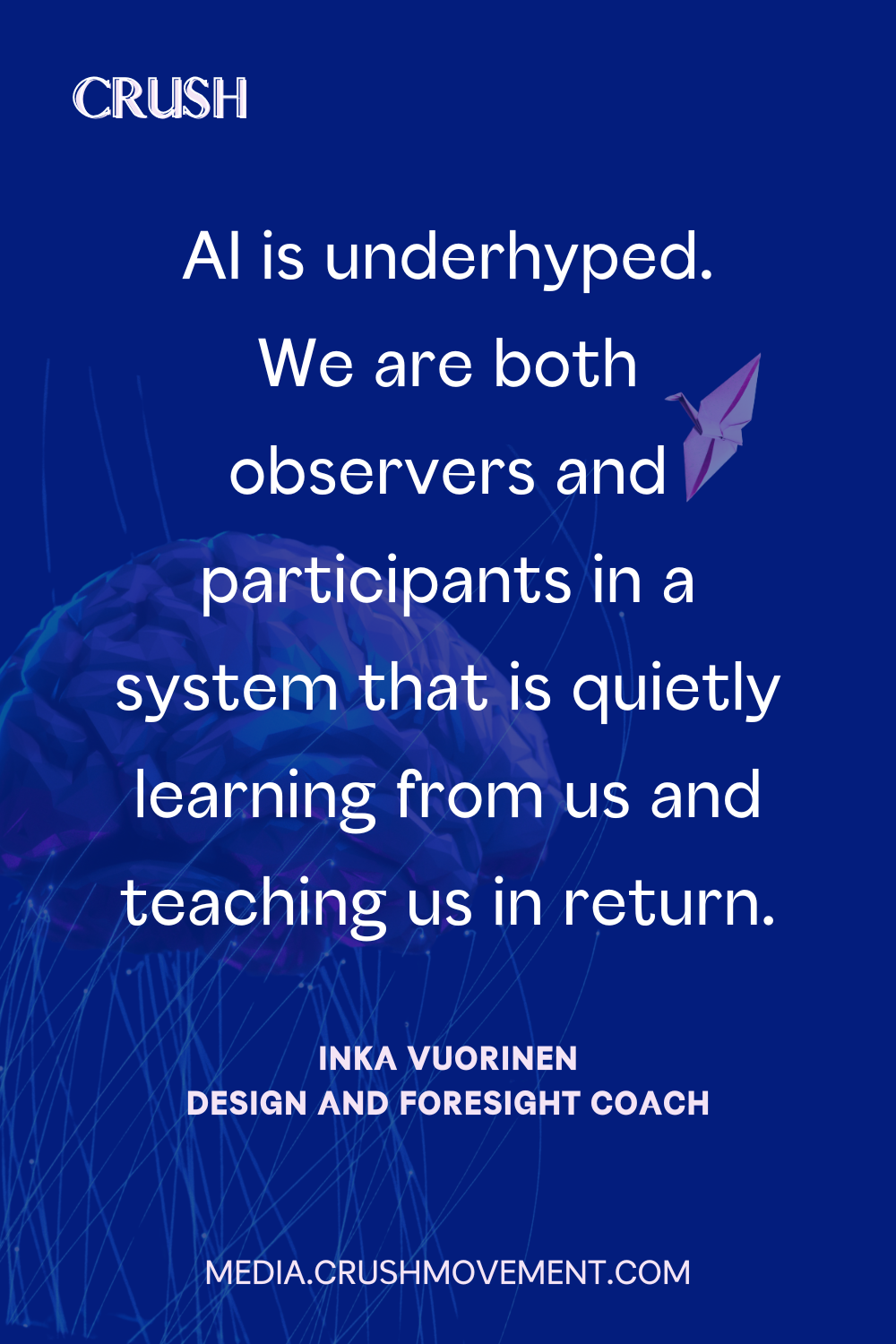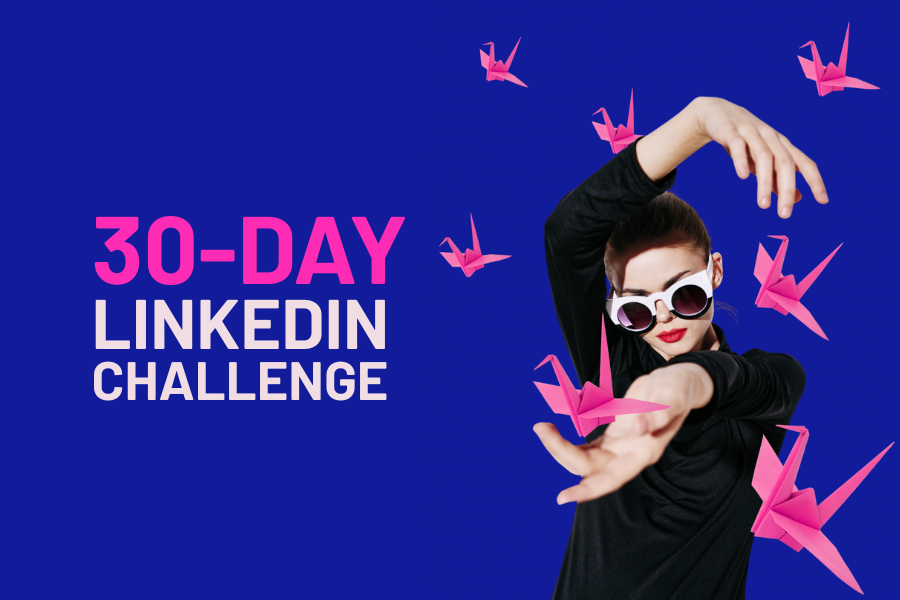

This article is the first part of a 5 part series talking about the nature and affects of AI to our future by Inka Vuorinen of Momentum Design.
There’s a quiet revolution happening all around us, and most of us barely notice it.
AI isn’t arriving tomorrow it’s already here. It doesn’t always announce itself with dramatic headlines or viral videos. Instead, it quietly shapes the world we live in: the way we scroll, shop, learn, work, and even think.
And yet, somehow, I feel its presence is often underhyped.
We still tend to think of AI as futuristic, distant, something stealing our jobs or noise in the news. The truth is far more subtle and pervasive. It lingers in the background, learning, analyzing, predicting, and nudging our world in ways we often take for granted.
- Recommendation engines suggest what we watch or read
- Predictive algorithms anticipate demand before it happens
- Cybersecurity tools flag threats before anyone notices.
AI doesn’t always announce itself, it simply changes the status quo in quiet.
And because it’s subtle, we underestimate it.
We might be awed by the videos AI can create out of our parents old pictures.
We might joke about chatbots or even bully them.
But we miss the quiet, almost invisible influence that touches the decisions, relationships, and outcomes of our every day. Its power is not in the spectacles and the wow factor, but in the background, in the unnoticed currents of our digital lives.
Think about this scenario for a minute: a hospital using AI to prioritize patient care. It isn’t a dramatic robot marching down the halls. Instead, it is a system analyzing patterns in patient data, flagging risks, and advising doctors.
At first thought, it sounds great, right?
More efficient healthcare and more time for doctors to do they job.
But.
A small bias in its training data could favor one group over another, subtly shaping the outcomes without anyone realizing it, until the damage is done.
The AI itself isn’t malicious; it is quietly reflecting the choices, oversights, and assumptions encoded in its data. In other words, while AI is not a human, it is built by biased humans.

The truly fascinating part is how invisible AI systems are.
AI doesn’t need a dramatic presence to shape outcomes; its subtlety is its power. It moves like the wind through the layers of society: affecting markets, guiding decisions, nudging behavior. And because it’s subtle, we tend to trust it without a question. We assume that automated means accurate, that predictive means reliable. And yet, every model is an echo of the choices and assumptions of its creators.
This invisibility can lull us into a false sense of security. We forget that AI is not neutral. Every recommendation, every alert, every suggestion carries context, and also the risk of misinterpretation. We may never see the ripples it creates, but they are there, quietly reshaping our world.
So what does it mean to live in a world quietly shaped by AI? It requires awareness. We need to pay attention to where and how these systems operate, to the assumptions behind them, and to the ways they influence decisions and perceptions.
It’s not about fear.
It’s about curiosity and responsibility.
To trust AI is to understand it, not blindly follow it. And to understand it, we need to notice it, question it, and engage with it thoughtfully.
Even something as simple as scrolling a feed, opening an app, or following a recommendation is participation in this subtle ecosystem. Each choice we make interacts with these algorithms, feeding them data, shaping their understanding, and subtly guiding their future behavior. We are both observers and participants in a system that is quietly learning from us and teaching us in return.

The quiet presence of AI asks us a question: how will we choose to respond?
Will we remain passive, marveling at the spectacle, or will we learn to notice, to understand, and to shape these systems in alignment with human values?
The story is just beginning, this was the first part of a 5 part series talking about the nature and affects of AI to our future, inspired by a recent client company webinar on AI and cybersecurity, which explored the subtle ways AI influences decisions, the risks of data poisoning, and the growing need for critical awareness in digital spaces.
Part 2 explores what happens when the data feeding these machines becomes poisoned, when the invisible hand of AI can be nudged, manipulated, or misled.
For now, pause to notice the silent architects at work, and reflect on the subtle power they already hold over your present moment and the future.
Inka Vuorinen is a Design and Foresight Coach who helps organizations harness the power of foresight to design future-ready services and teams. Through their work at Momentum Design, they guide companies in building internal foresight capabilities so they can anticipate change, innovate with confidence, and stay ahead of disruption. Inka’s approach combines futures thinking with radical creativity, empowering teams to explore new possibilities and turn insights into actionable strategies. Their workshops are designed for organizations that want to move beyond short-term problem-solving and start shaping their own futures. Inka collaborates with forward-thinking companies that are ready to invest in their future and foster a culture of continuous innovation. Read more: www.momentum-design.fi
A 30-day challenge designed for authentic thought leaders who want to become unignorable on LinkedIn.Build trust, master storytelling, and attract the right audience without relying on AI or clickbait hacks.Includes 28 emails with over 100 customizable post ideas, helping you show up confidently, optimize your profile, and grow your credibility, engagement, and sales.
